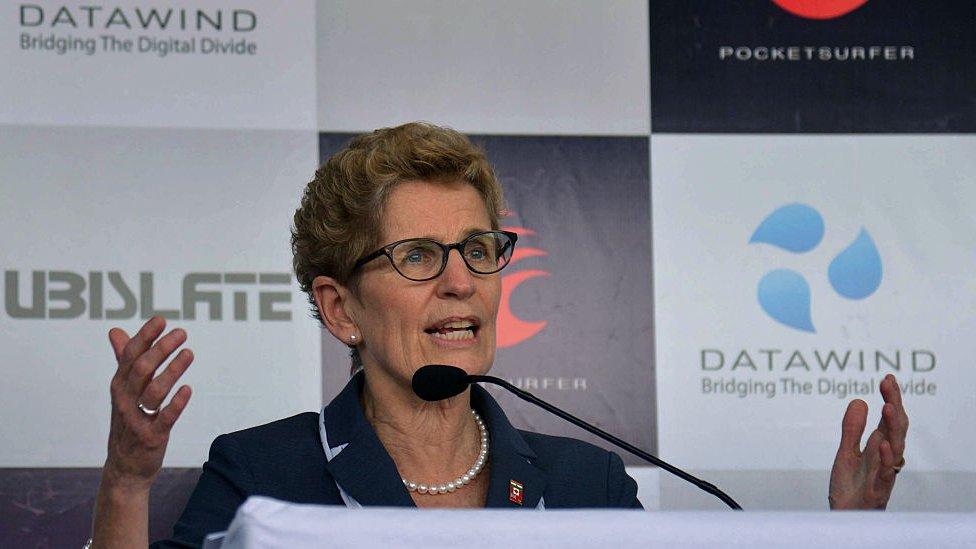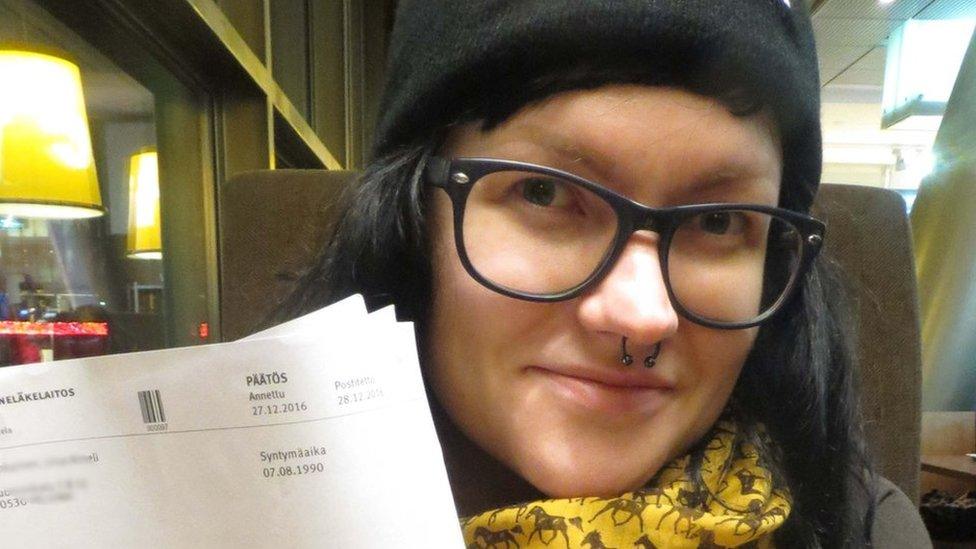Ontario to try giving poor a basic income
- Published

Ontario Premier Kathleen Wynne announced a basic income pilot project in three communities across the province.
Canada's largest province is experimenting with giving poor people a basic income with no strings attached.
The three-year study will test whether this basic income is better than current social welfare programmes.
Randomly selected participants living in three communities in Ontario will be given at least C$16,989 ($12,600, £9,850) a year to live on.
Ontario Premier Kathleen Wynne said it is time to be "bold" in figuring out how to help society's most vulnerable.
"This is no time to retreat, this is no time for government to cling to the status quo," she said when the pilot was announced on Monday.
Ontario is not the only one trying this policy out.
Finland recently launched its own trial in January, and the Scottish government has expressed interest.
The idea is popular with both progressives and libertarians alike because it has the potential to reduce poverty and cut out red tape.
Ontario's pilot project will roll out in Hamilton and Thunder Bay this spring, and Lindsay this fall.
The program will cost C$50m a year, and will include 4,000 households from across those three communities. Participants must have lived in one of the areas for over a year, be between 18-64 and be living on a lower income.
Single adults will be given a yearly income of C$16,989, while couples will earn C$24,027, minus 50% of any income earned from a job.
By allowing people to keep part of their earnings, the government hopes people will be encouraged to work and not rely solely on assistance.
"It's not an extravagant sum by any means," Wynne said, noting that many people who are struggling in the province are employed part-time and need additional assistance to make ends meet.
- Published16 January 2017

- Published5 June 2016
